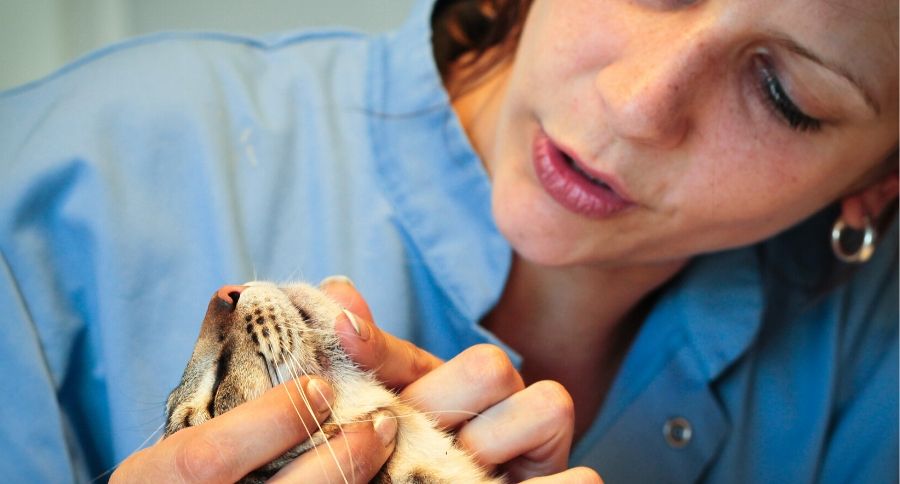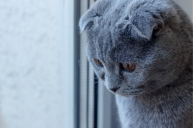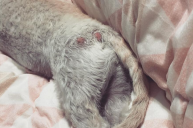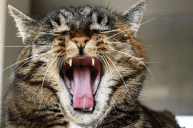Cats run their faces on everything! This is how cats communicate and if you watch closely they're doing this all the time! Cat chin acne is caused by allergies or in some cases trauma. When cats rub their face and chin on things, it can also cause damage to their skin follicles and hair. Yet there are a number of causes in addition to these that can cause this skin condition! It's treatable. Don't worry too much.
We break this down for cat owners so you all have some information before bringing your cat to the vet!
What is cat chin acne?
VCA Hospitals helps us with this definition. It's not much different than the acne that humans get!
"Chin acne in cats is a poorly understood disorder of follicular keratinization. Keratinization refers to the overproduction of keratin, a protein found in the outer layer of skin. If this excess keratin is trapped in the hair follicle, comedones or 'blackheads' form. Pustules or 'pimples' may form if bacteria infect the comedones. Cat acne is characterized by the development of folliculitis (inflammation of the hair follicles) and furunculosis (larger sores similar to 'boils')."
What are the symptoms of chin acne in cats?
https://www.instagram.com/p/Bdn5oBUj6Gf/
Here's what you should look for when you're wondering if your cat really does have cat chin acne.
- The most common clinical sign associated with chin acne is the dirty appearance of the chin. Small black dots are common.
- Lesions may appear like blackheads, whiteheads, and red bumps. (similar to the above).
- In some cases, you may see hair loss and there may be tenderness in that area.
What about the top causes of chin acne?
Have you heard of this? The link between plastic bowls and hair follicles or whisker issues with cats? Well, that's the number one reason and cause of this skin condition.
VCA Hospitals tells us that in a significant number of cats, there is an association between using plastic food and water dishes and chin acne.
"The irregular surface or scratches in the plastic make it more prone to bacterial contamination. Whatever the cause, the result is that the hair follicle becomes 'plugged' and an infection with its accompanying clinical signs results."
Other causes may be stress, bacterial overload, poor grooming, an infection or suppressed immune system.
How should you treat chin acne in cats?
https://www.instagram.com/p/B2ksNkggfts/
After your vet determines what the diagnosis is there are multiple treatment options.
First, home treatments may include soothing the area, cleaning the affected area, and applying a topical treatment like Vetricyn. Vetricyn is a great product for skin conditions that I use on the dogs and the chickens.
With that in mind, the vet may recommend steroids, a medicated shampoo and in some cases antibiotics.
Experts at VCA Hospitals also talk about using a benzoyl peroxide facial preparation or an antiseborrheic shampoo to cleanse the affected area and flush out the hair follicles.
"Affected cats often benefit from a fatty acid supplement, especially Omega 3 fatty acids. In some cases, it may be necessary to keep the hair clipped short. Oral antibiotics or isotretinoin may be used in more severe or chronic cases."
Don't worry if your cat has feline acne! Consider changing their water bowls since that's a major reason that can happen. There are worse skin conditions like ringworm!
Have you run into this with your cat? Please leave a comment below.
WATCH NOW: Cute Cat Videos Actually Make You More Productive!




